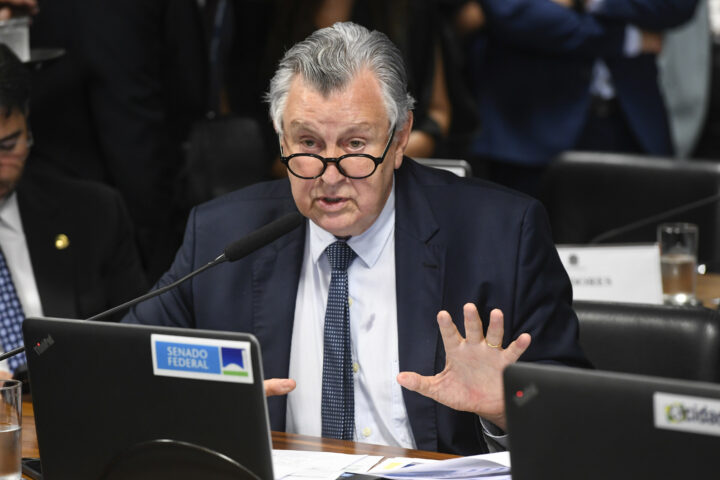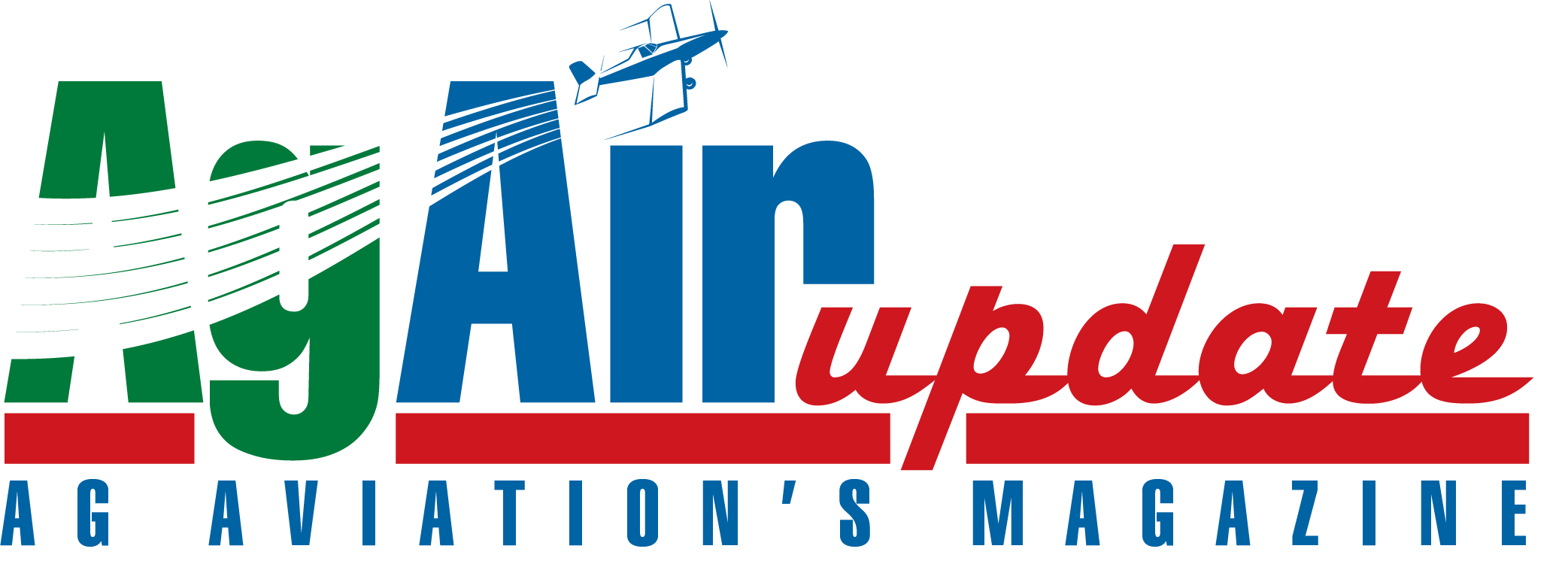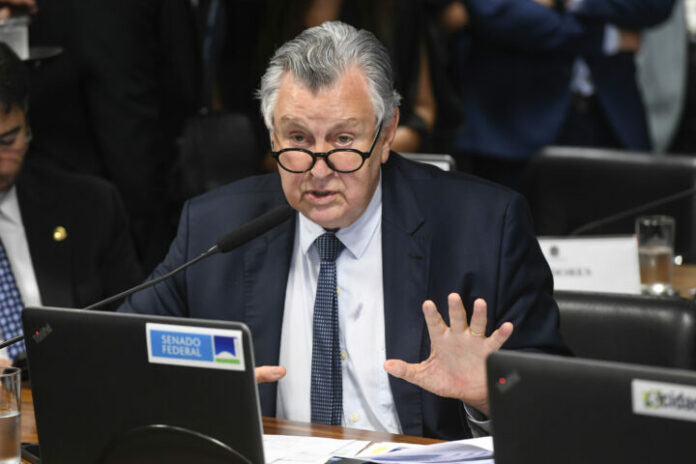Senator Heinze’s request for a public hearing on the topic was approved on Wednesday, November 8th, and now awaits scheduling
The Agriculture and Land Reform Committee of the Brazilian Senate approved, last Wednesday (8th), the holding of a public hearing on the importance of agricultural aviation for the country. The request came from senator Luis Carlos Heinze (Progressive Party) and the expectation now is to schedule the meeting.

HEINZE: Brazilian senator proposed a hearing to show that the agricultural aviation sector is essential for increasing production and reducing the environmental impact of crops – photo: Waldemir Barreto/ Agência Senado
The hearing will be attended by the president of Sindag, Hoana Almeida Santos, as well as representatives from the Ministry of Agriculture and Livestock (MAPA) and the Brazilian Agricultural Research Corporation (EMBRAPA). The Senate should also invite representatives of the Brazilian Associations of Soybean Producers (APROSOJA), Cotton Producers (ABRAPA) and the Brazilian Tree Industry (IBA) to the hearing, as well as leaders of the Federations of Rice Growers Associations of Rio Grande do Sul (FEDERARROZ) and the Brazilian Sugarcane Planters (FEPLANA). The list also includes former agriculture minister Roberto Rodrigues (current coordinator of the Agribusiness Center at the São Paulo School of Economics, for the Getúlio Vargas Foundation (FGV EESP) and FAO Special Ambassador for Cooperatives) and other authorities and technicians.
The objective is to also take to the Senate the debate that took place on August 30th, when the hearing on the topic was once held in the Chamber of Deputies. According to Heinze, the debate is necessary because, despite the importance of the ag aviation activity, there are constant attacks based solely on myths about the sector. Even resulting in projects trying to prohibit the activity.
“The agricultural plane has characteristics that make it more than just one of the protagonists in the application of pesticides. Its precision in operations and ability to apply fewer pesticides per area means it plays a fundamental role in reducing environmental impact,” said Heinze.
The senator Jaime Bagattoli (Liberal party) defended the approval of the request. “If aerial application is banned, how will cotton be planted in this country? Ninety-five percent of the application in cotton crops is done by plane”, he explained.
AGAINST FAKE NEWS
Brazil has the second largest fleet of agricultural aircraft in the world, with more than 2,500 planes and helicopters operating on crops. In addition to a highly competitive industry in the supply of technologies and equipment for the sector. And an agricultural aircraft market that has been growing at close to 4% per year. Which accounts for around 30% of all applications of pesticides on crops in the country. In addition to sowing and fertilizer operations, and firefighting operations in plantations and natural reserves.
Despite having existed in the country for 76 years, in recent years the sector has suffered many attacks mainly by the radical left wing of Brazilian politics, together with groups such as Brazil’s Landless Workers Movement (MST, in Portuguese acronym), a group that promotes invasions of land in different parts of the country – the MST’s strategy is, basically, to force the government to buy the invaded properties, to subdivide them and distribute them to families who are part of the movement.
The Movement is directly against agribusiness (despite this sector currently responsible for around 30% of Brazilian GDP). As a symbol of this ideology, the MST made the agricultural aviation as a target symbol to be fought against. With support from similar groups, some authorities and even part of the press and the population of cities who are unaware of the routines, technologies, and importance of agriculture for the country.
As a result, false information proliferates that, in theory, should not survive a simple exercise of logic. Like fake news saying that agricultural planes always lose 70% or more of the products applied, contaminating schools and cities. And even the absurdity that the OECD plans to ban the activity worldwide. Among other lies.
The response of SINDAG and the Brazilian Institute of Agricultural Aviation (IBRAVAG) has been to promote debate with social and technical entities, in government institutions and in legislative chambers in cities, states and the country’s capital. In addition to holding a series of conversations with journalists and has been promoting, since September, a campaign on social media





